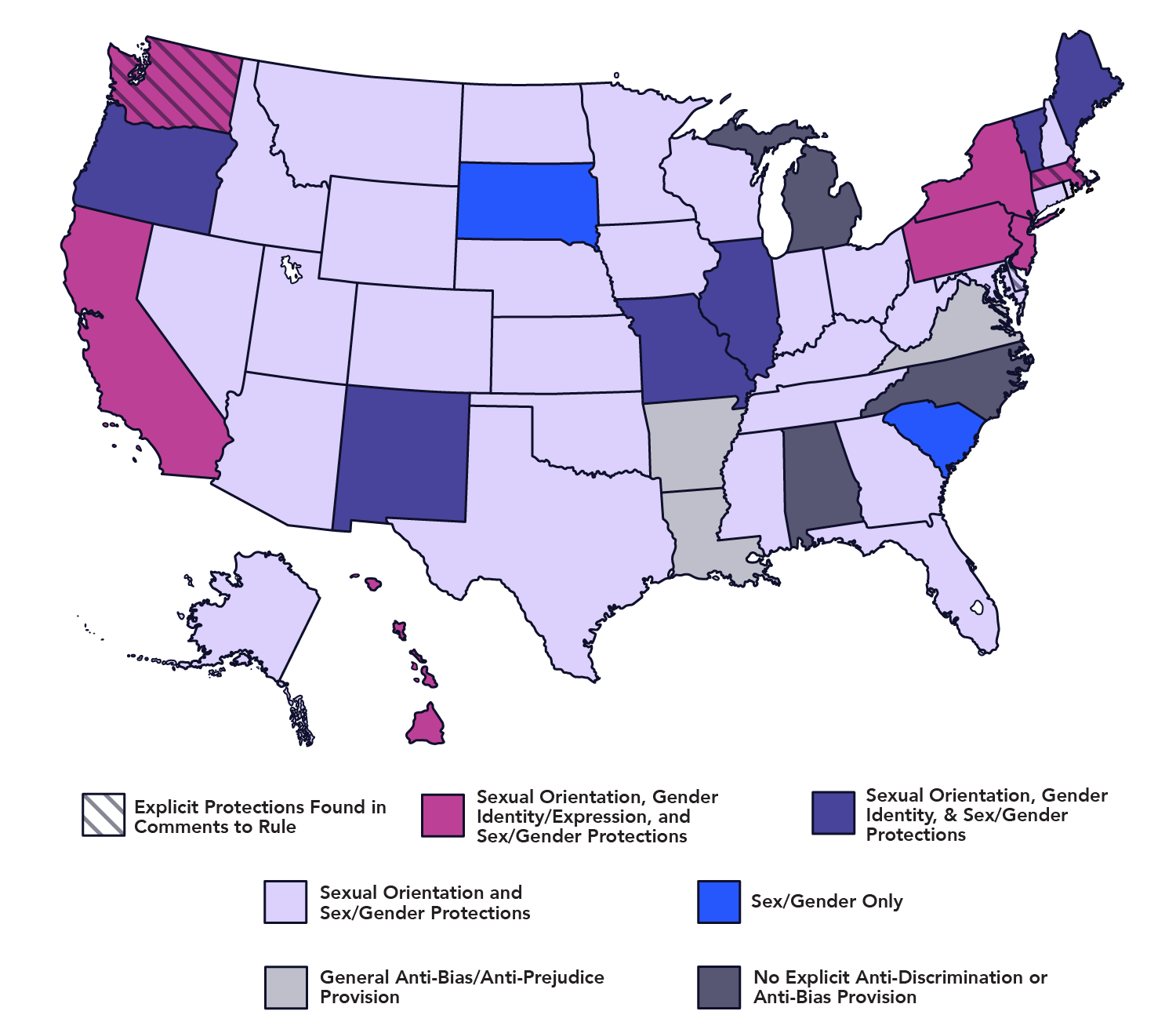Judicial Codes of Conduct Map
This map and summary outlines anti-discrimination protections in judicial codes of conduct across the United States.
Scroll down to select your state and find it’s specific information.
For more accessibility options to navigate this page, click on the person icon in the bottom left-hand corner of the screen to toggle your settings.
This map provides information about the anti-discrimination rules within each state’s Judicial Code of Conduct. Specifically, this map shows whether a state has explicit anti-discrimination protections based on gender and/or sex, sexual orientation, gender identity, or gender expression that judges must follow. For information about a particular state’s anti-discrimination provision within that state’s Judicial Code of Conduct, click on the link to that state below. Included within each state’s section, there is: (1) a citation to and language of the anti-discrimination rule in the state’s code of conduct, (2) a link to that rule, and (3) a link to the agency or commission in the state that accepts official complaints against judges.
Alabama | Alaska | Arizona | Arkansas | California | Colorado | Connecticut | Delaware | District of Columbia | Florida | Georgia | Hawaii | Idaho | Illinois | Indiana | Iowa | Kansas | Kentucky | Louisiana | Maine | Maryland | Massachusetts | Michigan | Minnesota | Mississippi | Missouri | Montana | Nebraska | Nevada | New Hampshire | New Jersey | New Mexico | New York | North Carolina | North Dakota | Ohio | Oklahoma | Oregon | Pennsylvania | Rhode Island | South Carolina | South Dakota | Tennessee | Texas | Utah | Vermont | Virginia | Washington | West Virginia | Wisconsin | Wyoming

